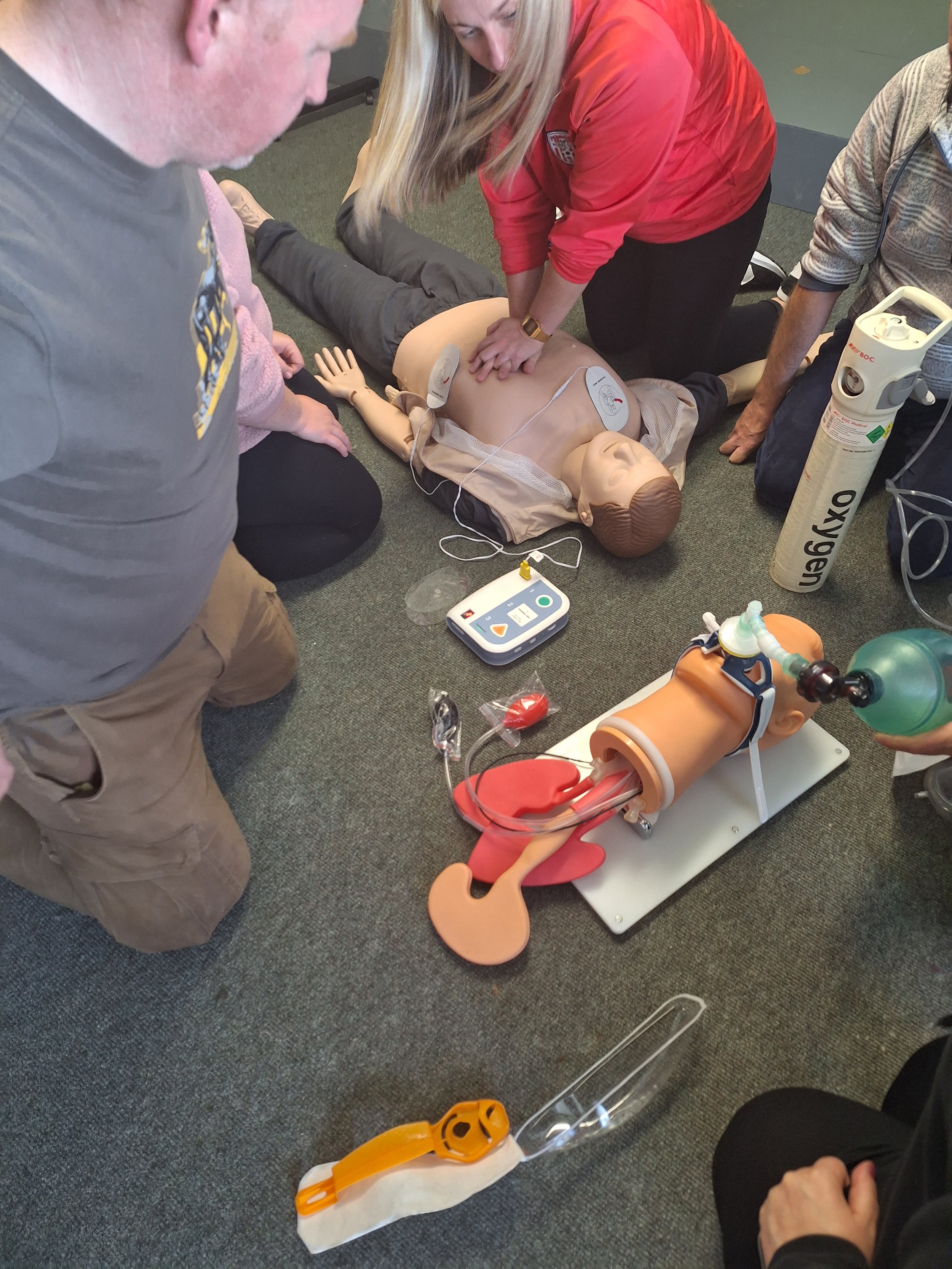Cardiac First Response - Advanced
Do you know what to do in an emergency situation? A Cardiac First Responder Advanced Level is a person trained in cardiopulmonary resuscitation and in the use of an automated external defibrillator (AED) who can respond to someone who has suddenly collapsed.
Entry to the CFR Advanced level is aimed at persons who may be working in the emergency medical services, fire and rescue services or a healthcare professional working in healthcare facilities or in the community. In addition to responding to patients in the course of their duties responders can provide lifesaving skills in their homes and communities.
In addition to the competencies taught at CFR Community level, the Advanced level course teaches the airway management: suctioning, use of an oropharyngeal airway (OPA), supraglottic airway (SGA) uncuffed devices, bag valve mask (BVM), pulse checks, roles in team resuscitation and oxygen administration. If there is a concern about maintaining competency in all the required CFR Advanced level skills (in particular BVM use),
Did You Know?
The brain can survive for up to about six minutes after the heart stops. The reason to learn cardiopulmonary resuscitation (CPR) is that if CPR is started within six minutes of cardiac arrest, the brain may survive the lack of oxygen. After about six minutes without CPR, however, the brain begins to die.
Survival rates following cardiac arrest are directly related to time to resuscitation and in particular defibrillation. If defibrillated within 5 minutes, survival rates are approximately 50% and potentially higher with younger patients. If time to defibrillation is 10 minutes or more, virtually no one survives without cardiopulmonary resuscitation (CPR). This increases to 10 to 20% if CPR is used. A speedy and effective response is required if the chances of survival are to be increased.
In a Dublin study, the Mater Hospital Group found an overall survival to hospital discharge rate of 3.6% (13 out of 388 patients). In AED equipped sites, 7 out of 13 (54%) patients whom resuscitation was attempted survived to discharge. By contrast only 6 out of 375 (1.6%) survived arrest where an AED was not available.
Who’s It For?
Personnel working in the Emergency Medical Services, Fire and Rescue Services or a Healthcare Professional working in Healthcare Facilities or in the community
Duration
5-6 hours of instruction
Course Content
CPR: Adults, Children & Infants
Use of Face Mask Devices
Use of an AED (Defibrillator)
Recovery (safe airway) Position
Airway Obstruction Adult, Child and Infant
Aspirin Administration for Heart Attack
Stroke
Oxygen Therapy
Suction Devices
Oropharygeal Airways (OPA)
Bag Valve Mask Ventilation (BVM)
Advanced Airway – Non-Inflatable Supraglottic Airway (SGA)
Method of Delivery
The course is facilitated by an instructor who will use PowerPoint presentation, DVD and practical sessions to guide you through the course.
Certification
Upon successful completion of the course, students will be issued with a certificate in Cardiac First Response-Advanced. Certificate is valid for 2 years.
Student Ratio
8 students max per 1 instructor
Cost
€90 per person
Group discounts are available (Please contact us here for further information)
Course is ran through Medicore

